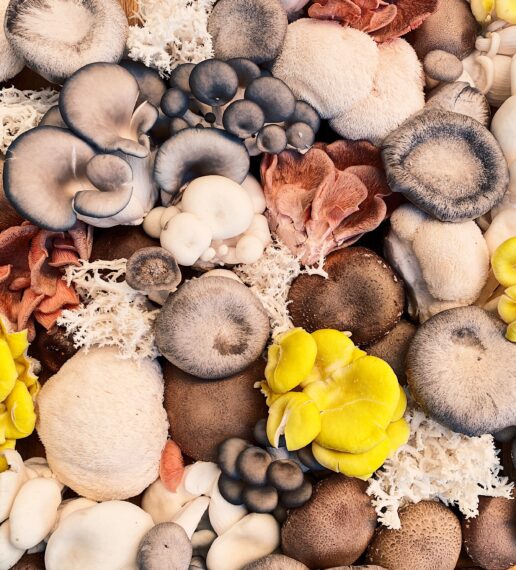What To Eat Before A Workout
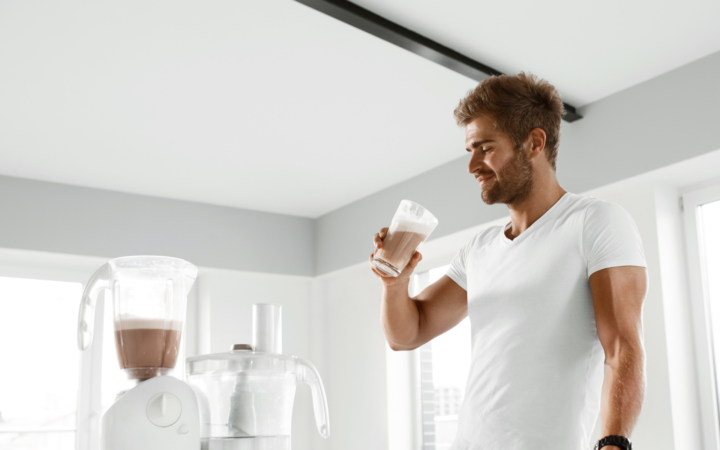
Whether you’re hitting the gym, heading outside, or working out in the comfort of your home, chances are you’re always looking for ways to enhance your routine and maximize results.
That includes knowing what to eat before a workout.
While there is no one-size-fits-all formula for pre-workout fuel-ups, there are some practical tips you can follow to step up your game.
Before you lace up your shoes and fill up that water bottle, find out what you should eat before working out so that you can look and feel your best.
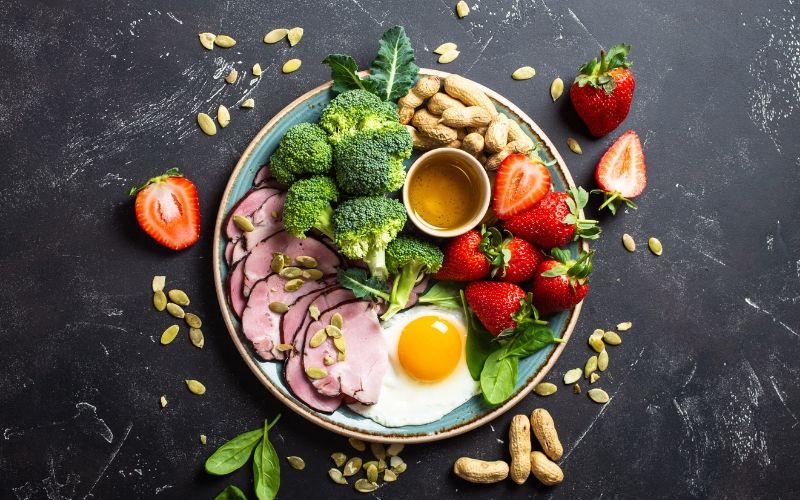
What To Eat
Many people might claim to know what the “best foods” are to eat before a workout, but it’s important to first know the main types of food so you can choose what your body needs.
Specifics vary from person to person and depend on the and type of exercise. (1)
Generally speaking, you can’t go wrong with eating a mix of protein and carbs.
Fat is also good for pre-workout meals, but just keep in mind that ideally you should have it at least a few hours before working out. (2)
Protein
Many of us already know that protein gives the body fuel to repair and build tissues, which is extremely important when it comes to exercise. In fact, studies have shown that consuming protein—either by itself or paired with carbs—before exercise can increase muscle protein synthesis. (3)
Research also shows that pre-workout and post-workout protein supplementation (including essential amino acids) as well as the timing of when you consume it can increase physical performance, training session recovery, lean body mass, muscle hypertrophy, and strength. (4)
Carbohydrates
Carbs are the sugars, starches, and fibers found in fruits, grains, vegetables, and dairy products. They’re also the body’s main source of energy. When you eat carbs, your body turns them into a form of sugar called glucose. That glucose is then turned into glycogen, which is mostly stored in the muscles and also the liver.
Research has found that ingesting carbohydrates (aka carbo-loading) can maximize glycogen stores and usage, especially for shorter, high-intensity workouts. (5)
Fat
You might think fat is a bad word when it comes to weight loss or working out, but the truth is that healthy fats (aka not trans fats) can be beneficial to your health. (6)
Studies have discovered that fat fuels endurance exercises such as jogging, hiking, dancing, and biking. In a 2018 medical report, researchers stated that athletes “should focus on good sources of fat that are high in unsaturated fats and essential fatty acids.” (7)
Healthy sources of fat include salmon, nuts and nut butters, and avocado, as well as coconut and olive oil.
Pre-Workout Meals
When it comes to meals before working out, timing is very important and it can actually enhance performance. (8)
As mentioned, eating 2 to 3 hours before your workout is ideal since you can have a full meal of carbs, protein, and healthy fats. On the other hand, if you don’t have much time before your workout, try a small portion of carbs and protein, even if it’s just a protein bar or other pre-workout snack.
Remember: the less time you have between eating and working out, the smaller your meal should be. You want to have some food, but you also don’t want to get so full that you end up feeling lethargic or getting cramps.
As for the idea that working out on an empty stomach can help you burn more fat? The scientific jury is still out. A 2019 report confirmed that there is some evidence that “overnight-fasted exercise in young, healthy men can enhance training-induced adaptations in skeletal muscle metabolic profile,” however, more studies are needed. (8) ‘
This is especially true for those who have blood sugar issues. Some pre-workout meal ideas include:
- Whole grain bread with peanut butter or almond butter
- Oatmeal with protein powder,
- Greek yogurt, and low-glycemic fruit such as cherries, apples, or strawberries
- Egg or tofu omelette with spinach and avocado, plus a piece of fruit
- Lean protein such as salmon or chicken with brown rice and steamed veggies
- Mixed greens salad topped with beans, hemp seeds, veggies, and a piece of whole grain toast
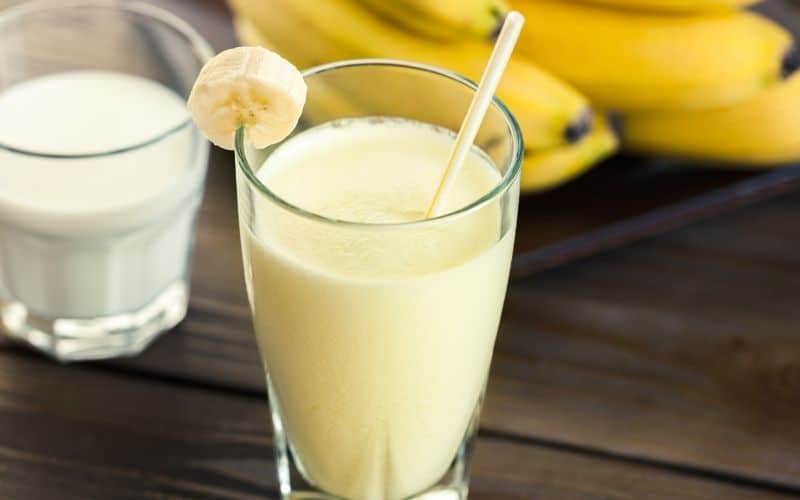
Pre-Workout Shakes and Drinks
One of the most popular and easiest ways to get in some much-needed nutrients before exercise is with a shake, smoothie, or other pre-workout drink.
Simply called a “preworkout,” these drinks usually have caffeine, creatine, beetroot juice, and specific amino acids aimed at increasing energy levels, improving exercise performance, and promoting muscle mass. However, as the most recent studies attest, the effectiveness and safety of pre-workout drinks is “preliminary at best.” (9)
That said, you might find better results by making your own pre-workout shake or smoothie with whey protein, which has been found to stimulate muscle protein synthesis when taken before and after exercise. (10) If you don’t do dairy, you can try dairy-free milk alternatives along with DIY vegan protein powders before your next workout.
Although pre-workout meals should be had at least 2 to 3 hours ahead of time, drinks don’t require as much lead time. Typically, you should be OK if you give yourself at least 45 minutes before working out.
Pre-Workout Supplements
There are countless workout supplements on the market, so it can be a bit overwhelming and confusing to pick one that’s right for you. To avoid decision fatigue and not-so-effective products, look for reputable brands that have been verified by third parties. As with any supplement, be sure to read the label and consult your doctor beforehand.
You can learn more about what to look for (and avoid) with our guide to pre-workout supplements.

Importance Of Hydration
We all know that water is essential for life and helps maintain the balance of body fluids, which impacts everything from digestion and oxygen circulation to nutrient absorption and transportation. (11)
While there are different recommendations on exactly how much water you should drink daily, many agree that 6 to 8 eight-ounce glasses (or half a gallon) is a good rule of thumb. In addition, there is good evidence that drinking appropriate amounts of water, especially cold water, can enhance exercise performance. (12)
Studies have also found that “supplementing water with electrolytes can reduce the amount of fluid necessary to consume and transport during extended activity,” which can in turn potentially minimize fatigue during extended exercise. (13)
Post-Workout Nutrition
As important as your pre-workout meals are, post-workout nutrition is also important. In fact, research shows that eating protein after exercise stimulates muscle protein synthesis and inhibits protein breakdown.
As with pre-workout eating, the type and amount of dietary protein as well as the timing is key.
A 2013 report found that whey protein seems to be most effective in increasing post-exercise muscle protein synthesis rates, while consuming approximately 20 grams of protein during and/or immediately after exercise can maximize rates.
It also found that carb loading does not further increase post-exercise muscle protein synthesis when ample protein is already ingested. (14)
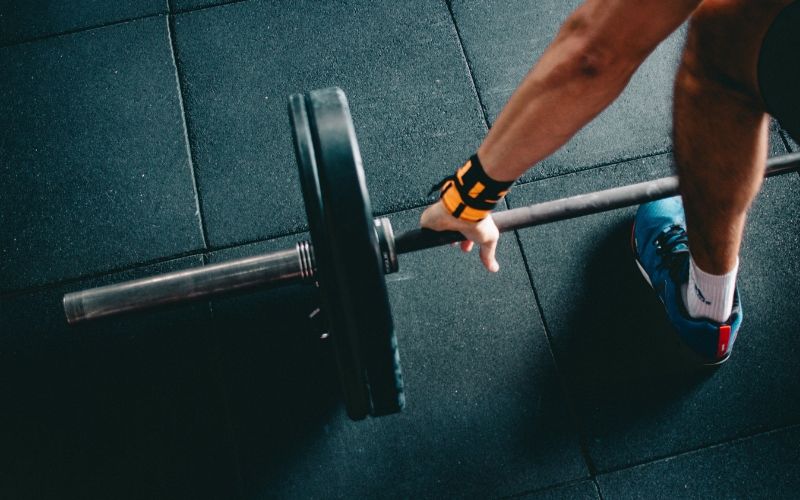
Working It Out
When it comes to working out, it seems there’s always room for improvement. Knowing what to eat before (and after) a workout, as well as when to eat, will help you perform better and recover faster.
Whether you’re a hardcore athlete or a weekend warrior, fueling your body with the right food is a surefire way to look and feel your best and reap the benefits of an active lifestyle.
